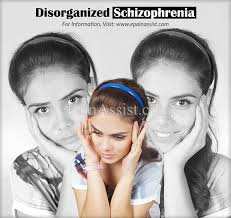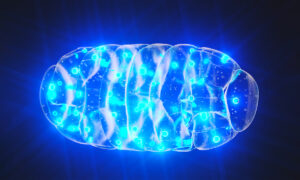Do you know someone suffering from disorganized schizophrenia?
Disorganized schizophrenia is a type of schizophrenia that is related to changes in a person behavior. However, these changes in their personal behavior and thoughts, are often illogical and inconsistent, and it can affect their day to day lives.
Like any form of mental illness, Disorganized schizophrenia is a serious mental disorder that will affect a person, and their close family members throughout their life. Thus, it is important to ensure that you are well equipped with understanding what this mental disorder could entail for you and your family.
Table of Contents
What is Disorganized Schizophrenia
Disorganized schizophrenia, also known as hebephrenic schizophrenia, is one of the five types of schizophrenia. As the name suggests, it is characterized by disorganization in speech and in the way patients express their emotions.
Disorganized schizophrenics are often told apart from other schizophrenics and from non-schizophrenic patients for having troubled speech patterns, being very emotionally unstable—oscillating between emotions quite often—and showing incoherent and confusing thought processes. They also have a difficult time communicating with others and may show inadequate social behaviors, which can lead to social exclusion.
Disorganized schizophrenia is a chronic mental health disorder but there are treatments and medication out there that can improve the life of schizophrenic patient significantly. The help of family and friends is also crucial to attenuate the complications that hebephrenic schizophrenia brings, bettering the life of the patient.
Disorganized Schizophrenia Symptoms
The main symptoms associated with disorganized schizophrenia tend to include delusions, hallucinations, disorganized speech, disorganized thoughts, catatonic behavior, and negative symptoms. In particular, negative symptoms denote the concept that people may not be able to care for their personal hygiene.
Disorganized Speech And Disorganized Thinking
This is often the first symptom to come up in people with schizophrenia. Schizophrenics suffering from this particular type of schizophrenia will experience incoherent speech patterns, often not being able to convey what they mean to the people surrounding them. It is not uncommon for hebephrenic schizophrenics to jump from one topic to another, make up words that only they know the meaning to, rhyme without noticing they’re doing it, and repeat the same things over and over again when trying to keep up a conversation.
There is the same kind of disorganization in the thinking process as there is in the speech patterns. Mental connections deteriorate because of the disease and start to affect both speech and day-to-day activities negatively.
Disorganized behavior
Once again, disorganization is the key symptom to describe someone with hebephrenic schizophrenia. Patients have a very hard time functioning independently and this is easily seen in the difficulty they have in starting or finishing a task without help from other people. Mundane tasks such as taking a shower or cooking a simple meal become herculean tasks for someone with this type of schizophrenia. Patients start to lose independence and not being able to perform normal everyday activities and they start to lose routines to the point where they can be completely lost.
In addition to this, their emotional behavior can be severely changed to the point where it’s not uncommon for friends and family to say to patients that they aren’t recognizable anymore and are acting weirdly. A disorganized schizophrenic will typically act bizarrely and their actions will lack purpose to non-schizophrenics.
All this can also be tied to the fact that disorganized schizophrenia leads to a lack of impulse control, which also affects one’s ability to socialize with non-schizophrenics.
Inappropriate emotional response
Disorganized schizophrenics have difficulty controlling their emotions and express them differently than non-schizophrenics. They tend to show little to no emotional expression on their faces, their tone of voice, and their body language. It is also not uncommon for them to express the wrong emotion to a sensitive situation; for example, they might start laughing at a funeral.
Hebephrenic schizophrenics are also characterized by behaving in a child-like and silly manner in public, connected to an inability to hold back emotions and know how to express them properly given the social context. They might also become aggressive or overtly sexual in social contexts even if they are unprovoked. Avoiding eye contact, freezing in place, moving excessively and other catatonic behaviors are all things patients with this type of schizophrenia have to deal with on a regular basis. This serves as an explanation as to why they usually tend to avoid social interactions.
Hallucinations and delusions
The commonly held idea that schizophrenics see, feel, taste, smell, and hear things that aren’t there holds true in this case, with the latter symptom being the most common among patients.
Delusions are also very common. Disorganized schizophrenics have the (false) feeling and belief that they’re being persecuted, show signs of feeling guilty often, and usually believe to possess super-human powers (such as exceptionally good hearing…) These feelings and beliefs lead disorganized schizophrenics to isolate themselves from other people, usually by hiding as a way to protect themselves from the fictional persecutor.
Other Types Of Schizophrenia
Besides disorganized schizophrenia, there are four other sub-types of schizophrenia: catatonic, undifferentiated, paranoid, and residual. Each of these sub-types has their own primary characteristics. These are all forms of mental illness and share many of the same traits. They are both a men’s and women’s health problem.
Catatonic Schizophrenia
Catatonic schizophrenia is characterized by the lack of speech and strange postures that the patients show. They can often be seen twitching and making odd motions without being provoked by an outside person or situation. They may also mimic people, as well as try to repeat their words.
Paranoid Schizophrenia
Paranoid schizophrenia is characterized by the delusions and hallucinations that are usually associated with a certain theme, such as seeing a lost loved one. People with this sub-type tend to see and hear things that are not actually there, hence the name “paranoid.”
Undifferentiated Schizophrenia
Undifferentiated schizophrenia is marked by the seeming lack of the symptoms seen in those who have schizophrenia, such as paranoia. People who have this type of schizophrenia do still have these symptoms, but they are simply not as noticeable and do not occur often.
Residual schizophrenia
Residual schizophrenia is the type in which the patient’s positive symptoms have fully disappeared, but the more negative symptoms continue to haunt them, such as a loss of interest in their goals and odd behavior. This can sometimes be mistaken for depression or bipolar disorder, but it’s important to note that this is not the case.
These four, in addition to disorganized hebephrenic schizophrenia, make up the five sub-types of schizophrenia. Some patients may display symptoms of schizophrenia and not be diagnosed under any of these five categories because their ailment is something else, for example, schizoaffective disorder.
Disorganized Schizophrenia: Talk To Your Mental Health Profession For Help
Today, the stigma of mental illness is slowly deteriorating! risk factors associated with disorganized schizophrenia have now been identified, and include genetic, viral infection, fetal malnutrition, stress, drugs, and more! It is important to speak to your mental health professional should you suffer—or know someone who is suffering from disorganized schizophrenia.
Do you or someone you know have disorganized schizophrenia? Do you have any more questions about this mental illness? Reach out to us for more information!







